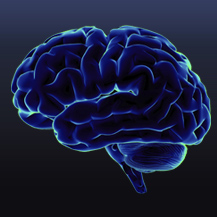- Flow
- For Musicians
- For Managers
- Neurobiology
- Synergetics
- Biography
- Contact
- Site Notice
- Privacy Policy
Intuition and Decision Making

The limitations of rationality
Growing complexity, turbulent markets and continual acceleration create conditions in which managers are forced with increasing frequency to make decisions within severe time constraints and based on insufficient data. In these situations rational analysis easily betrays its limitations.
The latest research has shown that in complex situations, intuitive decision making is distinctly superior to purely rational procedure in terms of speed and accuracy.
What is the neurobiological foundation of intuitive decisions?

The intelligence of the unconscious
Every second the brain receives about 11 million bits of information through its senses. A maximum of 40-60 bits per second can be perceived and processed consciously.
Below this threshold your brain is constantly registering, storing and evaluating a vast amount of information and decides what is important and what is unimportant. This reservoir of unconscious intelligence is utilized by intuitive processes.
This seminar builds on the skills learned in “Flow at the Workplace”. These skills are developed further and applied to decision making. The neurobiological foundation of intuition, creativity and innovative thinking will be explained and a variety of exercises will develop intuitive abilities.
Flow and intuition are two closely related concepts. In flow you are intuitive!
Seminar topics
- The neurobiological foundation of intuitive decision making
- The neurobiological foundation of creativity
- The structure of innovative thinking
- The brain in the state of self-organization
- When to decide intuitively, when not?
- Cultivating intuition about future developments
The benefits
- Quick comprehension of complex situations
- Better decisions under time constraints
- Better decisions with insufficient data
- Strong intuition for future trends
- Refined perception
- More effective communication
- Reduced friction loss
- Better coordination of reason and emotion
- Stress reduction
- Authentic self-presentation
- Inspiring leadership
